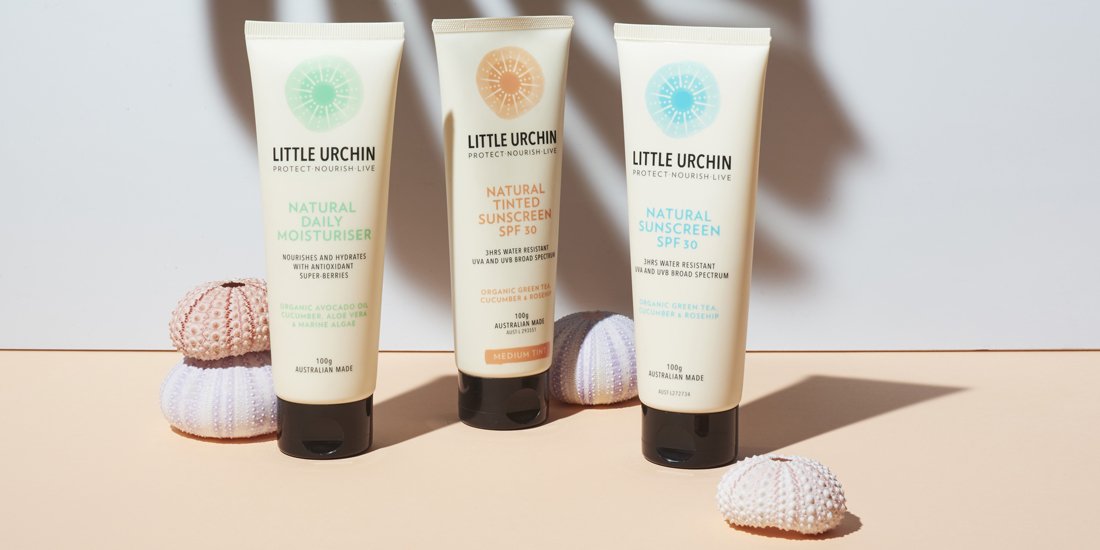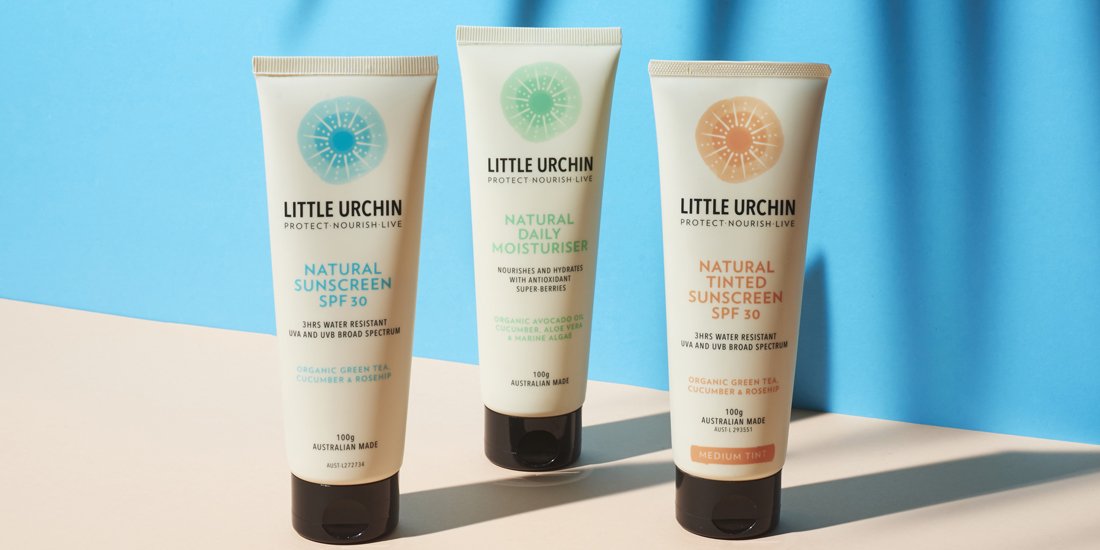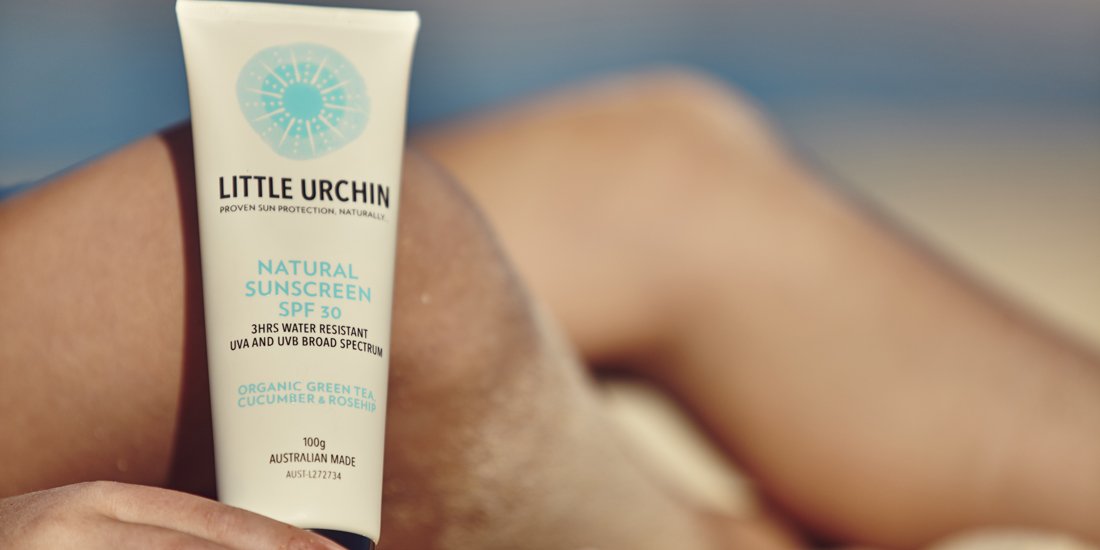


Protect your skin and the coral reefs with Little Urchin natural sunscreen
Us Queensland folk are generally very active – whether we’re out there exercising, swimming at the beach or wading in a kiddie pool sipping spritzers, we like to spend a fair chunk of our time outdoors. Wearing sunscreen has been a routine drilled into us since we were all little tackers, but have you ever wondered about those big words that make up the ingredients list on your trusty tube of suncream? Well, Chris Matthews did … and so begins the story of natural sunscreen brand Little Urchin.
Chris started noticing his daughter coming home from daycare covered in chemical-smelling sunscreen – he had little knowledge about chemicals but knew she shouldn’t be wearing it. Over the next six months, Chris developed his own formula before enlisting an industry-leading company to perfect the product and ensure its integrity – and Little Urchin came to life. While seeing toxic chemicals lathered onto the skin of his daughter was the main instigator, Little Urchin is also inspired by the planet. The only active ingredient in Little Urchin products is mineral zinc oxide, which doesn’t harm coral (or the little urchins!), unlike oxybenzone and other common ingredients found in most household sunscreens. Using organic ingredients, these sunscreens have a SPF30 rating, are safe for babies over six months, preservative free, suitable for sensitive skin and are reef safe.
Currently there is no certification (yet) that products are ‘reef safe’, some brands conduct independent toxicity tests to determine the harmfulness, but these tests are conducted on living animals … which kind of defeats the purpose and goes against Little Urchins’ whole ethos. Rather, Little Urchin relies on qualified industry studies, which show that zinc oxide doesn’t actually get into the water, because it’s a powdered mineral that does not dissolve in seawater. Being water resistant, it generally stays on the skin and if it does get into the water it settles eventually to the seafloor (like silt) and becomes buried in sediment. Interesting, right? If that doesn’t get your brain ticking over and onto Little Urchin’s website, then we don’t know what will! It’s reassuring to know that there are crusaders out there that genuinely give a damn about two precious things – humans and nature.
